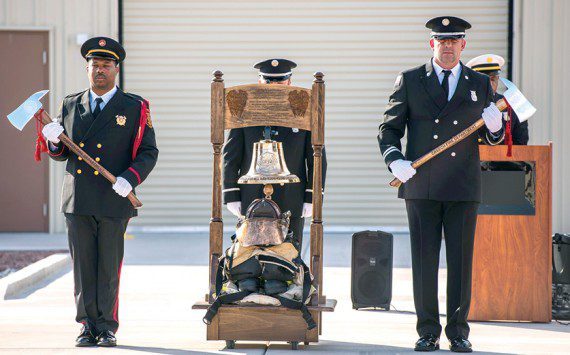NELLIS AIR FORCE BASE, Nev. — It can be hard to foresee what the future may hold, especially for military members.
Unfortunately, life can throw a wicked curveball. An Airman who may have wanted to make the Air Force a career might not get that opportunity due to unforeseen injuries or medical conditions.
“The medical evaluation board is for people that have varying injuries or conditions,” said Staff Sgt. Shawna Yoder, 99th Medical Support Squadron NCO in charge of the medical evaluation board office. “There are all different kinds of factors that can activate a Code 37 or make you eligible for an MEB.”
For example, Airmen who consistently do not test on certain components of a physical training test are brought up at the deployment availability working group (DAWG), a first step toward an MEB.
“Doctors, nurses, and administrative personnel will discuss your medical condition(s) and make the determination to turn on a Code 37, which means we’re going to formally consider you for an initial review in lieu of (IRILO) an MEB,” said Yoder.
Additionally, there are certain medical conditions, that when diagnosed, could automatically trigger an IRILO.
“If they’ve had consecutive fitness failures or if they miss certain components for a certain amount of time, the profile officers catch it and they’ll put them up for review,” said Ruben Sison, 99th Medical Support Squadron physical evaluation board liaison officer. “Not necessarily for a MEB, but to figure out why a member could be on a no push-up profile off-and-on for the past two years.”
If the profile officers can’t narrow a cause down, then the individual might not be ready for an MEB.
“It’ll flag and appear on our radar, but we’ll figure out if it warrants an MEB or if the commander or first sergeant needs to pursue administrative action,” said Yoder.
Yoder emphasized that at this point in the process, individuals aren’t undergoing a full MEB yet.
“This doesn’t mean you’re going to get kicked out or retired,” she said. “You’re still in the beginning stages. Some people think ‘that’s it, I’m getting out’ — however, that’s not the case yet.”
At this point, all of the individual’s relevant information will be brought up at the DAWG.
“If the DAWG members feel like you’ve met the maximum medical improvement, they’ll turn your Code 37 on and do the IRILO,” said Yoder. “So for the IRILO we’ll get a narrative summary from the provider, get a current copy of your (Air Force Form) 469, and a commander’s impact letter. Also, we’ll get any medical records pertinent to your condition or injury. Then we’ll send it to the Air Force Personnel Center.”
AFPC makes the determination if the member should be returned to duty (sometimes with an assignment limitation code) or if they should go through a full MEB. While going through an MEB, individuals can’t deploy, PCS, or go TDY.
If it is determined that the case should undergo a full MEB, then you will begin the stages of the full MEB process. Once that is complete, your information is sent to the informal board at AFPC and the informal board will make a determination on an individual’s case.
“If you don’t agree with AFPC’s informal board determination, you can dispute it and proceed to the formal board. That’s when you’ll actually meet before a board of doctors,” said Yoder. “That doesn’t happen with every case. That’s only if you disagree with the results you get. If you don’t like (the formal board’s) determination, then you still have the option to dispute your case to the Secretary of the Air Force. There is no board (for the SECAF), our office will send all your information up and they review it.”
“The purpose of the MEB isn’t necessarily to get someone medically retired or medically separated, it’s to make sure that we do what is best for the individual,” said Sison. “A majority of the time when they do have injuries or illnesses, they’ll do an assignment limitation code which states they have a condition that can be controlled and they can remain in the Air Force.
If an individual gets put on an assignment limitation code because of their condition, then they must get a waiver to deploy.
“That makes sure that before you deploy or do a permanent change of station, we’ve sent your waiver to the (chief of medical staff) and they’ve approved for you to go,” said Yoder.
“If the member isn’t 100 percent ready, we’re making sure the gaining base knows that and can determine if they can handle the medical condition at that base.
“If a member can’t deploy, PCS, or go TDY, that places a strain on the rest of their unit because now those people have to pick up the slack,” said Yoder. “By processing these waivers we’re helping the unit stay mission ready and alleviating some of that strain.”
Airmen can also get brought before the board if they have a canceled PCS or deployment because of a medical condition, said Senior Airman Rebecca Brown, 99th Medical Support Squadron PEBLO.
For more information about the medical evaluation board or its process, contact the MEB office at 702-653-2180.
Quicklinks

Published every other Friday, Nellis AFB Desert Lightning News is distributed on Nellis AFB, as well as locations throughout Las Vegas, NV
News and ad copy deadline is later than Monday, 4:30 p.m., the week of desired publication date. The publisher assumes no responsibility for error in ads other than space used.










